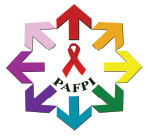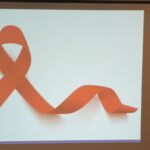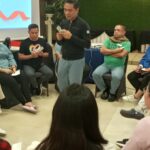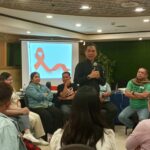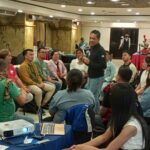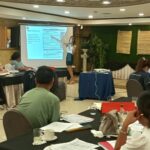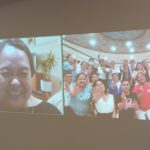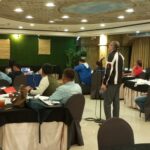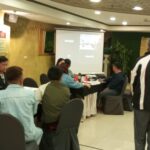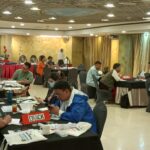10 PAFPI-EpiC staffs went on a 5-day HCT training at Bayview Park Hotel, 20-24 May 2024. The purpose of the training was to equipped staffs with the most current, latest HCT knowledge and best practices to apply in a real-life HIV counselling session with clients for pre-test and post-test result for HIV screening.
Belows are some of the most important take-aways the participants learned as per the most current available knowledge and best practices.
The latest knowledge and best practices in HIV Counseling and Testing (HCT) are crucial for providing effective support to individuals in the Philippines, where HIV/AIDS remains a significant public health issue. Implementing these best practices ensures that clients receive accurate information, emotional support, and appropriate referrals. Here’s an overview of the most up-to-date strategies and recommendations for conducting HIV counseling sessions in the Philippines:
1. Pre-Test Counseling
Objective: To prepare the client for the HIV test, ensuring informed consent and providing necessary information.
Key Components:
- Informed Consent: Ensure the client understands the purpose, process, benefits, and potential outcomes of the HIV test. Obtain explicit consent.
- Risk Assessment: Discuss the client’s risk behaviors and potential exposure to HIV. This helps tailor the counseling session to the client’s specific needs.
- Education: Provide information about HIV transmission, prevention, and the importance of knowing one’s status.
- Emotional Support: Address any fears or anxieties the client may have about the testing process and potential results.
Best Practices:
- Use clear and non-judgmental language.
- Ensure privacy and confidentiality.
- Encourage questions and provide clear, concise answers.
2. Conducting the Test
Objective: To administer the HIV test accurately and efficiently.
Key Components:
- Testing Procedures: Follow standardized protocols for HIV testing, whether using rapid tests or laboratory-based methods.
- Safety and Hygiene: Adhere to strict infection control practices, including the use of gloves and disposal of sharps in appropriate containers.
Best Practices:
- Double-check test kits and expiration dates.
- Explain the testing procedure to the client.
- Maintain a calm and professional demeanor.
3. Post-Test Counseling
Objective: To provide appropriate support and information based on the test result.
Key Components:
- Result Delivery: Clearly and compassionately communicate the test result to the client.
- Positive Result:
- Emotional Support: Allow the client time to process the result and provide immediate emotional support.
- Medical Referrals: Refer the client to HIV care and treatment services, including antiretroviral therapy (ART).
- Prevention Counseling: Discuss strategies to prevent transmission to others, including safe sex practices and needle use.
- Negative Result:
- Risk Reduction: Reinforce strategies to maintain an HIV-negative status, such as consistent condom use and regular testing.
- Retesting: If the client had a recent potential exposure, advise on the window period and recommend retesting.
Best Practices:
- Use a supportive and non-judgmental approach.
- Provide written information and resources.
- Schedule follow-up appointments for further support and testing if necessary.
4. Linkage to Care
Objective: To ensure clients who test positive for HIV are connected to care and treatment services.
Key Components:
- Referral Systems: Establish strong referral networks with local HIV treatment centers, support groups, and mental health services.
- Follow-Up: Schedule follow-up appointments and check-ins to support the client’s transition to care.
- Adherence Counseling: Educate clients on the importance of adherence to ART and regular medical follow-ups.
Best Practices:
- Develop a directory of local HIV services and resources.
- Collaborate with community-based organizations for additional support.
- Provide continuous support to encourage retention in care.
5. Addressing Stigma and Discrimination
Objective: To create a supportive environment that reduces stigma and discrimination associated with HIV.
Key Components:
- Education: Educate clients and the community about HIV to reduce misconceptions and stigma.
- Advocacy: Advocate for policies and practices that protect the rights of people living with HIV.
- Support Groups: Encourage participation in support groups for people living with HIV to foster community and resilience.
Best Practices:
- Train healthcare workers on stigma reduction and cultural sensitivity.
- Promote positive stories and testimonials of people living with HIV.
- Engage in community outreach to normalize discussions about HIV.
Conclusion
By incorporating these best practices, HIV counselors in the Philippines can provide comprehensive and compassionate care that addresses both the medical and emotional needs of their clients. Staying informed about the latest developments in HIV treatment and prevention, maintaining confidentiality, and fostering a non-judgmental environment are key to effective HIV counseling and testing.
